This superb projector system will give you a true cinema experience at home
These five Award-winning components combine to cover all cinematic bases
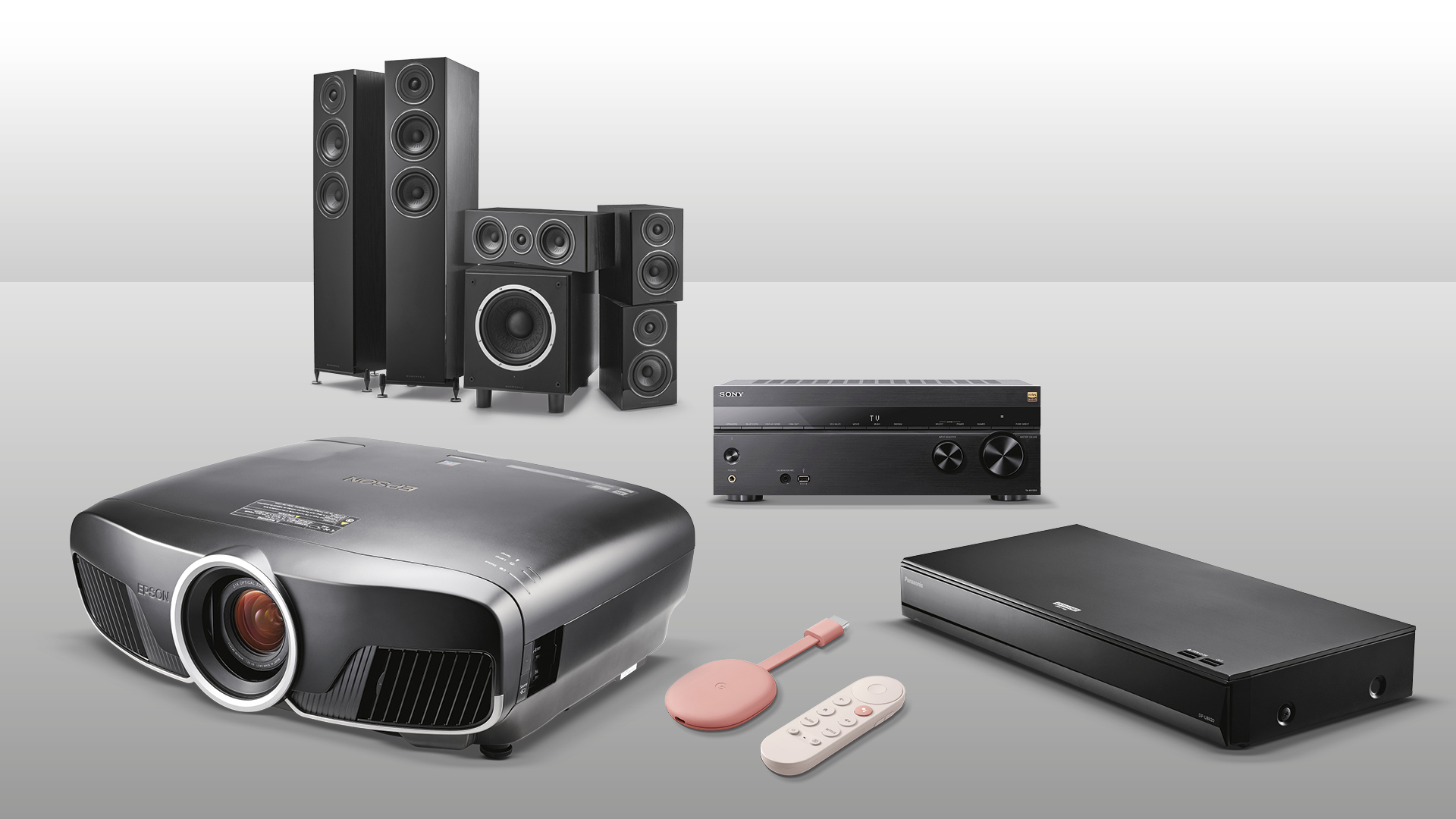
As anyone even vaguely in touch with the audio-visual arena will know, there is no substitute for a quality 4K projector when it comes to true home cinema. That's why for our latest AV system builder we've amassed a group of products around the multi-Award-winning Epson EH-TW9400, which is the point at which home cinema projection gets serious.
The system
- Projector: Epson EH-TW9400 / Pro Cinema 6050UB (£2199 / $3999 / AU$4999)
- Streamer: Google Chromecast with Google TV (£60 / $50 / AU$99)
- 4K Blu-ray player: Panasonic DP-UB820EB (£299 / $500 / AU$600)
- AV amplifier: Sony TA-AN1000 (£999 / around $1240 / AU$1850)
- Speaker package: Wharfedale Diamond 12.3 HCP (£1299 / $2025 / AU$4122)
- Total system price: £4856 / $7814 / AU$11,670
Projector: Epson EH-TW9400 / Pro Cinema 6050UB
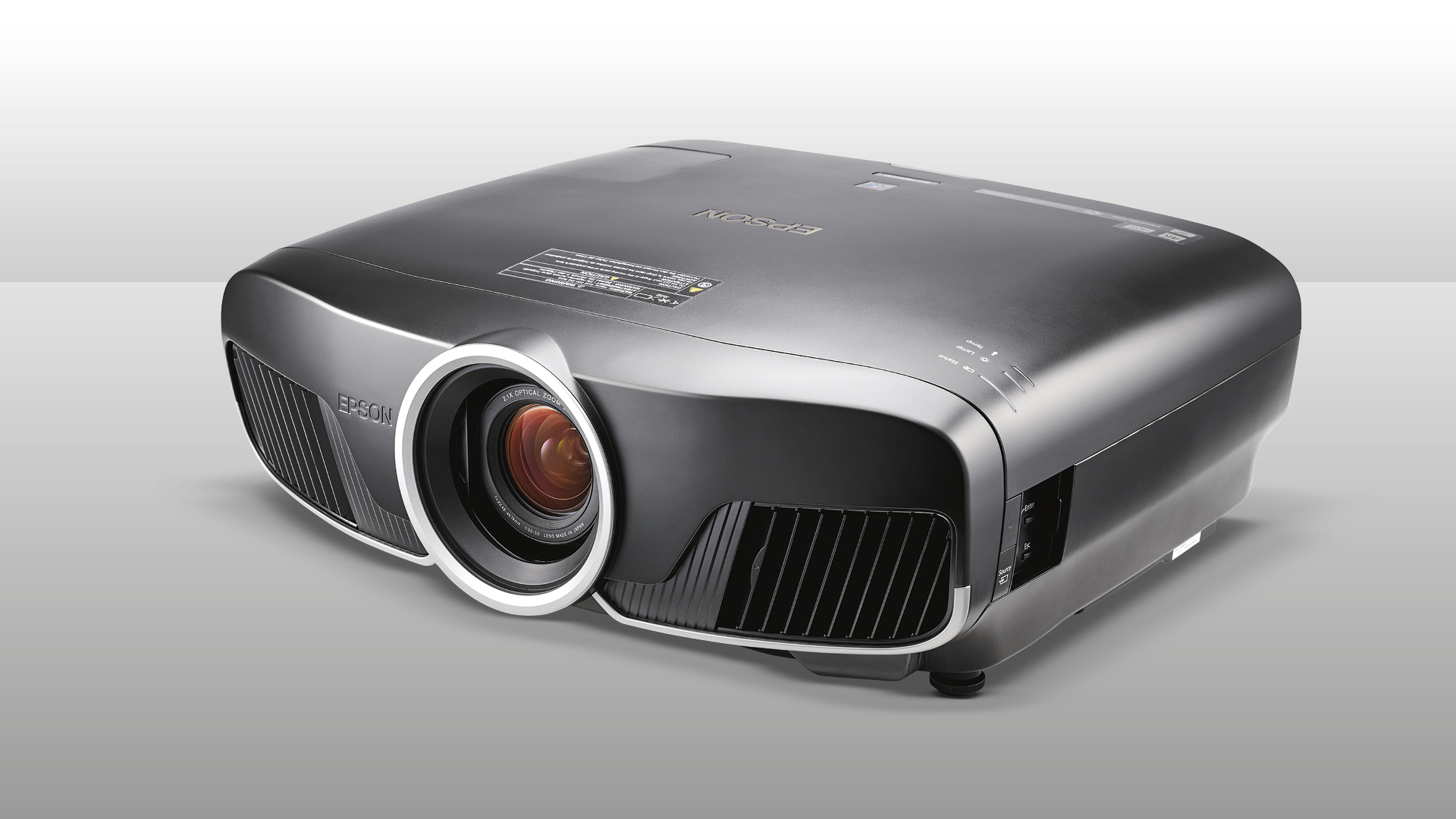
Our watchword here is ‘premium’ and, without venturing into the rarefied atmosphere of kit for the super-rich, our choice of projector reflects that fact. We have gone for the Epson EH-TW9400 (known as the Pro Cinema 6050UB in the US), a product that, to quote our original review, is “a projector on the edge of greatness”. So much on the edge, in fact, that it has just won our 2023 Award for Best Projector in its price category.
This is a solidly constructed, sizeable LCD-based projector that weighs in at a pretty hefty 11kg, so you will need a fairly large space on your equipment rack to accommodate it. Its image is filtered through a 2.1x optical zoom lens with a throw ratio of between 1.35 and 2.84:1, allowing you a range of options for the distance between the projector and your screen. The image itself can be anything from 50 inches right up to 300 inches in size.
What you see on the screen (and you will need a screen rather than your white-emulsioned walls – don’t worry; decent ones can be had for relatively little money) is the result of Epson’s 4K Enchancement pixel-shifting technology. That means there is no native 4K projection but in its place some clever upscaling wizardry that effectively results in 4K resolution. To get a native 4K chip you would have to pay around twice as much; unless your budget stretches to £5000 the EH-TW9400 is as good as it gets.
And it does get very good. Supporting the HDR10 and HLG formats of HDR, this projector immediately surprises with the amount of brightness it can produce. Epson’s claim is 2600 lumens, but the more important piece of information is that the TW9400 is streets ahead of the competition in brightness terms. You can, for example, comfortably watch a film in moderately lit conditions (although we would, of course, never recommend doing so if you can avoid it).
Detail levels are remarkably solid, both in moderately lit scenes and darker ones. Night scenes can often appear more dark grey than black – even at this level – but not so with the Epson, which displays plenty of differentiation in such scenes and so gives a terrific sense of depth, especially with HDR footage. It really sets this device in a different league to that of its rivals.
There is also a vibrancy and subtlety to the rendering of colours that outperforms rivals such as the Optoma UHD65, and the Epson’s picture pops with authenticity. Even on a 1080p Blu-ray of Jupiter Ascending, colours are beautifully strong, even if the pitch-black performance at this resolution isn’t perfect.
Get the What Hi-Fi? Newsletter
The latest hi-fi, home cinema and tech news, reviews, buying advice and deals, direct to your inbox.
Connections include a USB 2.0, two HDMI 2.0 ports and Ethernet, so you can connect a set-top box, a streamer and a hard drive as well as a Blu-ray player. That’s good news, as that is exactly what we would like to do here.
Streamer: Google Chromecast with Google TV
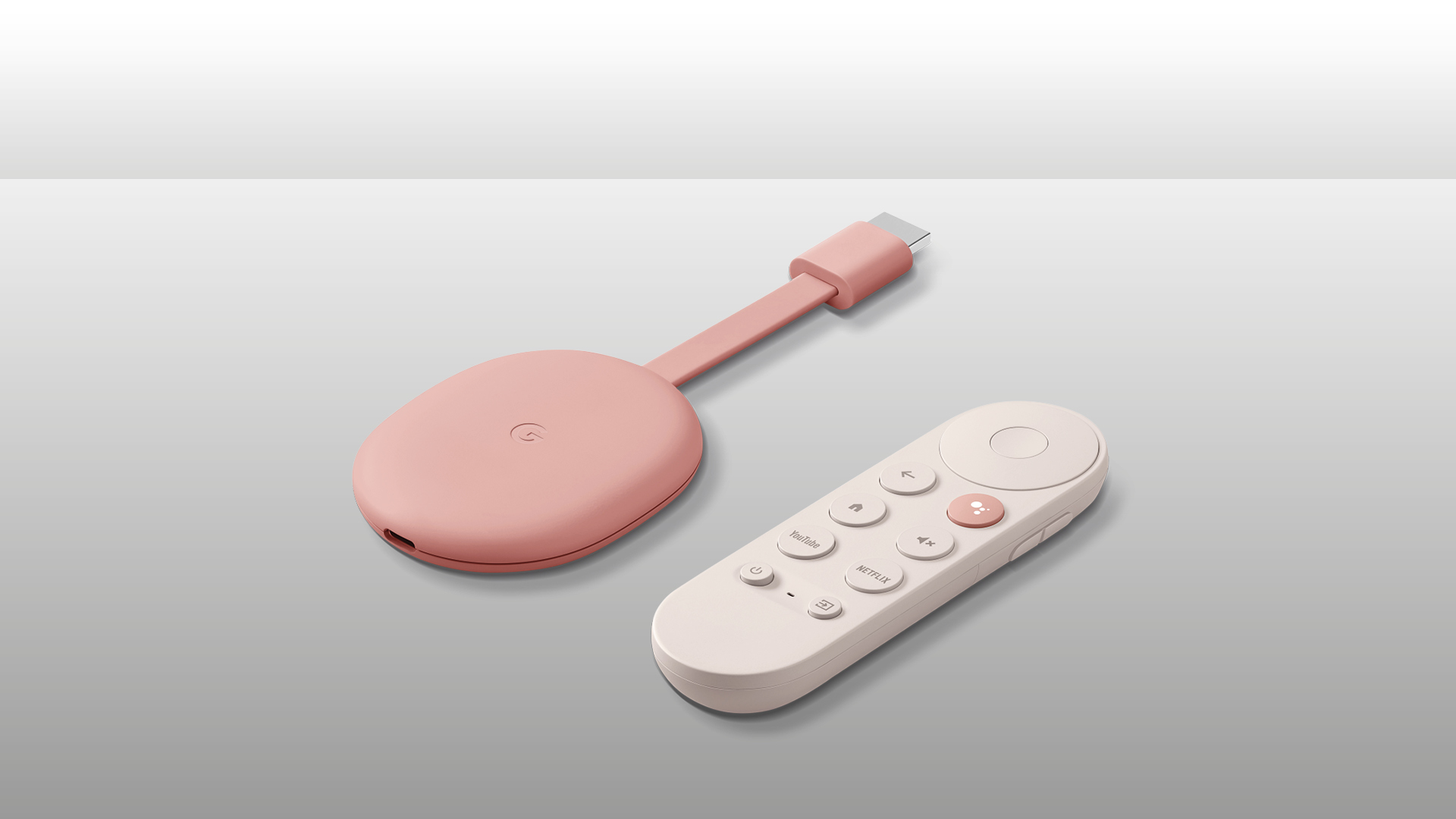
First of all, something to provide your viewing content. Google Chromecast with Google TV is quite simply one of the best video streamers available in a fiercely competitive market. In its latest guise, this dongle-based device (just plug it into an HDMI port on the projector or AV amp) offers improved usability and performance. There’s now a remote control too – and it is voice-enabled so that those who want to use Google Assistant to help them search for content can do so.
You might think this device’s name is a bit of a mouthful but Google’s TV interface is worth shouting about. It is compatible with over 6500 of the apps built for Android TV and can recommend content on the home page from over 30 streaming services, including Netflix, Amazon Prime Video, Disney+, iPlayer and more. Its recommendations will also default to the cheapest or free option if there is a choice.
That new remote is comfortable to use and well thought-out too – the voice recognition is very advanced; as well as asking for specific TV shows or films, you can make more general requests such as “show me films about time travel”.
The picture provided by this little device is top-drawer. It is sharp, textured, well exposed and does admirable justice to HDR source material. Colours are deep and natural and bright light is very distinct, that latter quality making this device a particularly good partner for the Epson EH-TW9400.
4K Blu-ray player: Panasonic DP-UB820EB
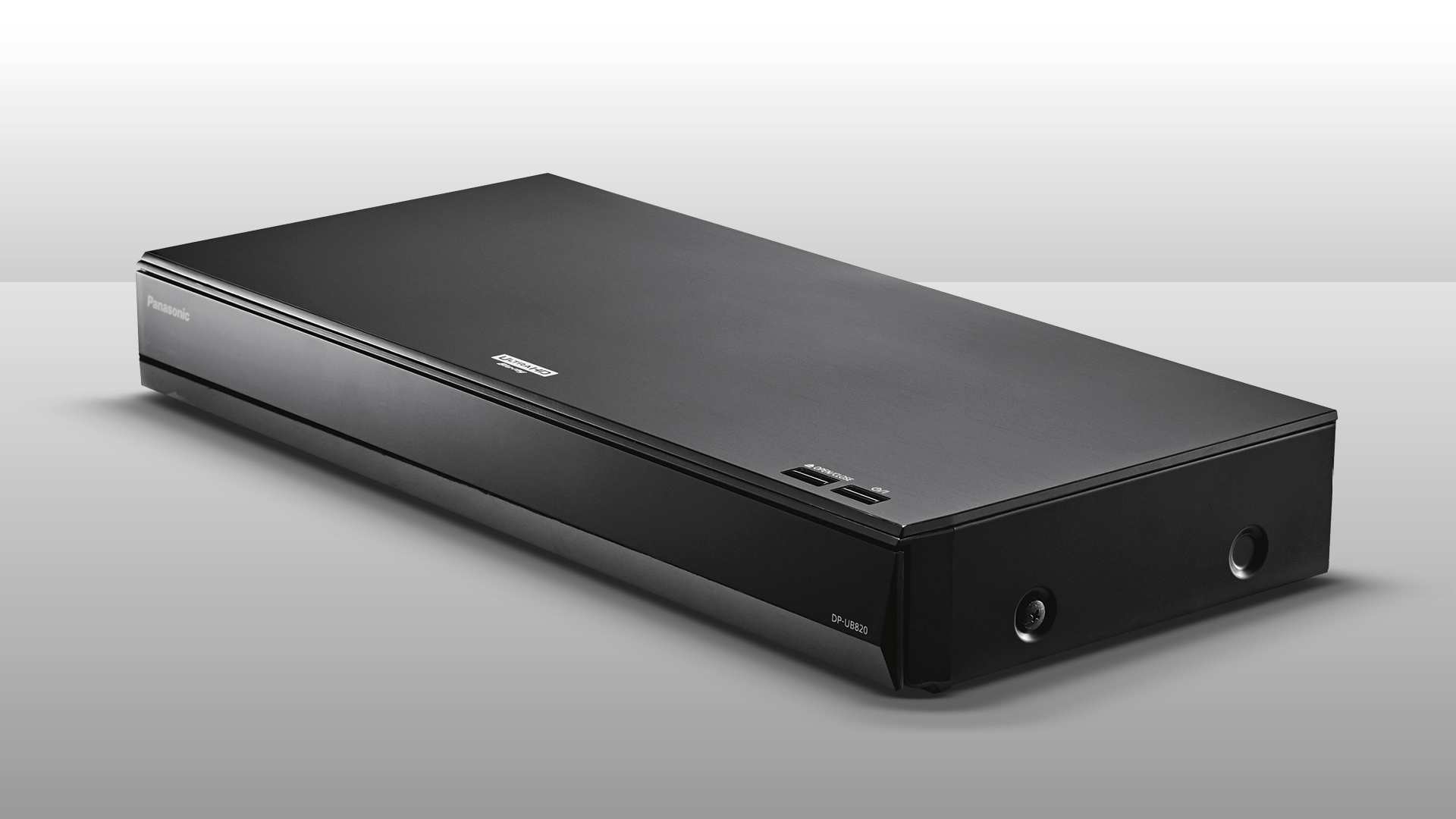
With the Epson projector and Google Chromecast nailing their picture performance so well, the pressure is on for the Blu-ray player in this system, the Panasonic DP-UB820EB. As you might have guessed, it is more than up to the job.
In line with the other elements of this system, the UB820EB is a 4K player, and covers all the necessary HDR bases. There is HDR10 and HDR10+ support as well as Dolby Vision, and it is powered by Panasonic’s clever HCX (Hollywood Cinema Experience) picture-processing engine taken from the more expensive DP-UB9000 – which these days will cost you roughly three times as much as UB820.
Watching Blue Planet II in 4K and HDR10, we see that the Panasonic picks up an impressive level of detail on the remarkable sea creatures that glide in front of our eyes. There’s a sudden burst of vibrant colour as a rare species of crab appears. With Dolby Vision content the UB820EB raises the bar higher still, as we discover when watching Aquaman.
As with its little brother, the UB150EB, the Panasonic excels sonically as well as visually, giving our next component everything it needs to sing.
AV amplifier: Sony TA-AN1000
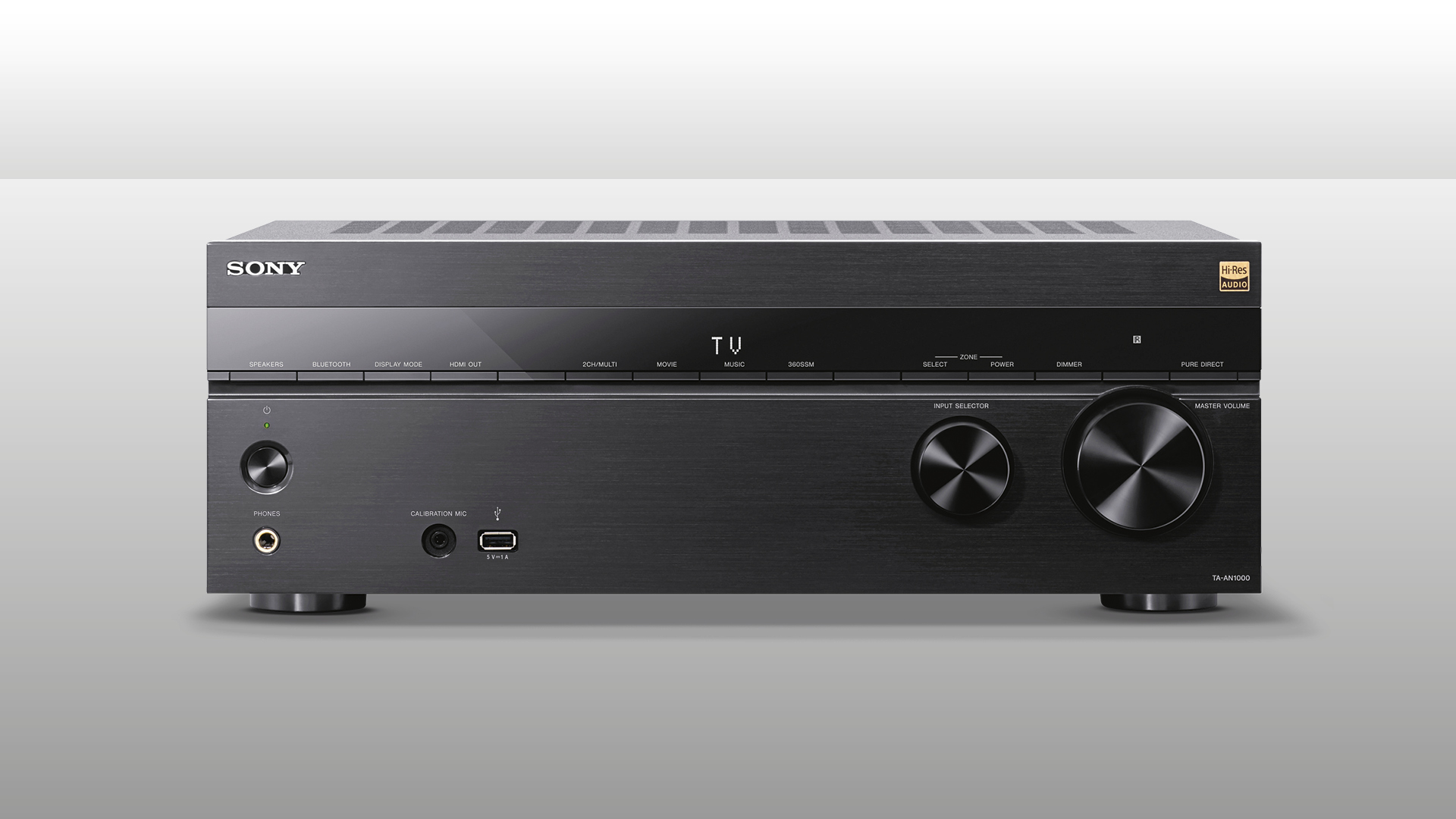
Packed with features, the Sony TA-AN1000 is decently equipped in the HDMI department, with two HDMI outputs with eARC and six HDMI inputs. In terms of HDMI 2.1-capability, all the HDMIs can handle VRR and ALLM, but only two of the inputs (and both the outputs) are compatible with 4K/120Hz and 8K/60Hz signals. In terms of wireless connectivity, Bluetooth, Spotify Connect, Chromecast and AirPlay 2 are all supported.
There are seven channels of power amplification, which can either be configured up to a 7.1 set-up or a 5.1.2 Dolby Atmos. The Sony outputs a claimed 85W of power per channel with all channels driven.
At this point, we feel the need to do little more than quote our original review of the Sony: “There are no two ways about it, this amp is seriously talented in all the key areas we look for when testing a home cinema amplifier. Its powerful and dynamic performance continues to impress the more we listen to it”.
Along with impressive power and dynamics, the Sony also excels in terms of the precision and clarity of the sound it delivers. Factor in its spacious presentation and you have a genuine all-round high achiever. It might not have quite the smoothness of a rival such as the Denon AVC-X3800H (the amp you should buy if you live in the US, where the TA-AN1000 isn't available), but we are happy to trade that for the Sony’s bite and subtlety, both of which make the films we are watching more exciting and immersive. Oh, and it’s great with music, too.
Speaker package: Wharfedale Diamond 12.3 HCP
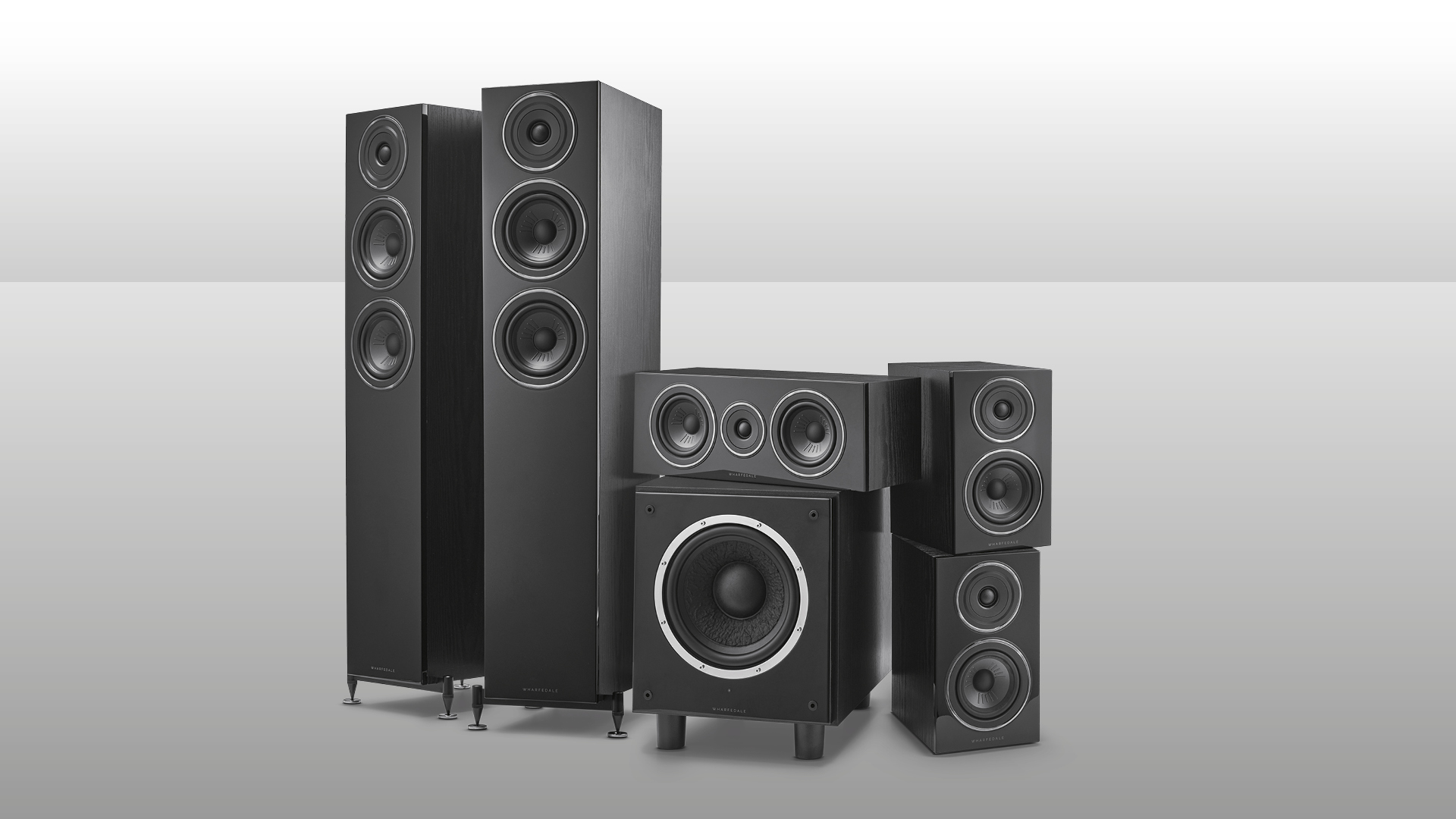
The final piece in this high-end system is the Wharfedale Diamond 12.3 HCP speaker package. If you have read about our Next-gen TV system, you will know where Wharfedale’s Diamond range excels. The difference here is that, while the rear 12.1 speakers are the same, the front pair of 12.1 standmount speakers are replaced by the company’s 12.3 floorstanders. At under 98cm tall, these are a manageable size and have an elegant, classic design that incorporates two 13cm drivers and a 25mm woven polester soft-dome tweeter, designed for smooth, wide dispersion of higher frequencies.
These 12.3s give the whole package a sound that has greater scale and depth than that of the smaller 12.1 package – and one that better suits the talents of the Sony TA-AN1000. Like the Sony, too, the 12.3 combination excels when it comes to music, as we discover when we turn to Queen’s Live Aid performance in Bohemian Rhapsody and hear that it is both enjoyably musical and dramatically detailed – right down to the giggle of a security guard picked out from the melee of the crowd.
Like a well-rehearsed band on top form, this quintet of AV excellence manages to bring out the best in each of its members’ performances. And all you need to do is sit back and enjoy it.
MORE:
These are the best projectors you can buy right now
And here are the best AV amplifiers
What Hi-Fi?, founded in 1976, is the world's leading independent guide to buying and owning hi-fi and home entertainment products. Our comprehensive tests help you buy the very best for your money, with our advice sections giving you step-by-step information on how to get even more from your music and movies. Everything is tested by our dedicated team of in-house reviewers in our custom-built test rooms in London, Reading and Bath. Our coveted five-star rating and Awards are recognised all over the world as the ultimate seal of approval, so you can buy with absolute confidence.
-
Ian AV Now your talking. A 'real' home cinema package that will deliver the goods at a reasonable price if you have the space for a decent sized screen. The DP-UB820EB is all you need to spend to get the best picture and audio quality using HDMI outputs. If you need dual purpose use for stereo music too, then look elsewhere or buy a dedicated player for stereo. Home cinema without a projector or a TV with at least a 75" and preferably 85" screen is just not home cinema. To me, projectors give a much more natural, involving, lifelike experience though as TV's have that unnatural shine / sheen that is not experienced in nature, albeit, pleasing to the eye in some circumstances. I feel that I am starting a digital / analogue-esque debate here.Reply

